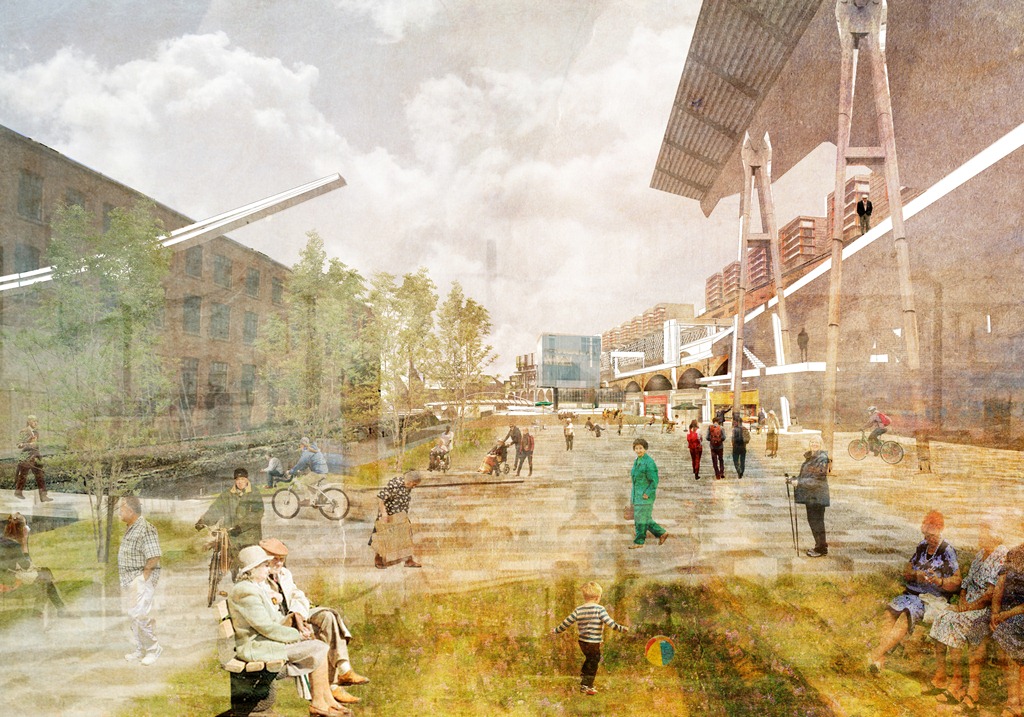Our health and mobility are intrinsically linked with the quality of our local environment. All sorts of things affect us, from housing density and neighbourhood deprivation to access to green space. In this topic (Topic 3), we explored how physical, built and social environments evolve over time and how they impact on inequalities in health in older age, related to mobility throughout life. One aspect of the research considered at what time during life the availability of local parks mattered most in building people’s resilience to change.
We used data collected from a group of 593 people all born in and around Edinburgh just over 80 years ago (the Lothian Birth Cohort 1936), asking the participants to provide information on their addresses throughout their lives. In tandem, we spatially indexed vast amounts of historical information (e.g. censuses, civic surveys, medical officer health reports, post office directories) for the City of Edinburgh, integrating these with contemporary datasets.
Looking at access to greenspace, we found a link between park availability in childhood and adulthood and cognitive test scores, with greater provision in both cases predicting better change in cognitive test scores between age 70 and 76. We also found that this benefit might be felt most by certain groups of people, for example women in a lower socioeconomic group.
The findings suggest that not only can greener places improve cognitive ageing (how our mental skills change over time), and reduce inequalities, but that the influence of access to high quality green spaces in childhood through to adulthood – particularly access to parks – can have life-long benefits. Commenting on the work, Julie Procter (Chief Executive of Greenspace Scotland), said: “[the research is] a key reminder of the importance of outside play for children and young people. The positive impacts of exposure to greenspace on stress and mental wellbeing are well documented. This study goes much further in demonstrating experience of green space as a child, and throughout life, has benefits in terms of ageing well”.
Team: Jamie Pearce, Niamh Shortt, Mark Cherrie, Ian Deary, John Starr, Catharine Ward Thompson, Catherine Tisch and Katherine Brookfield.
Papers
Pearce, J., Cherrie, M., Shortt, N., Deary, I. & Ward Thompson, C. (2018). Life course of place: a longitudinal study of mental health and place. Transactions of the Institute of British Geographers2018; 00: 1–18. https://doi.org/10.1111/tran.12246
Cherrie, M.P.C., Shortt, N.K., Mitchell, R.J., Taylor, A.M., Redmond, P., Ward Thompson, C., Starr, J.M., Deary, I.J. and Pearce, J. 2017. ‘Green space and cognitive ageing: A retrospective life course analysis in the Lothian Birth Cohort 1936′, Social Science & Medicine 196, 56-65
https://doi.org/10.1016/j.socscimed.2017.10.038
Pearce, J., Shortt, N., Rind, E. and Mitchell, R. 2016. ‘Life Course, Green Space and Health: Incorporating Place into Life Course Epidemiology’, International Journal of Environmental Research and Public Health 13(3), 331 doi: 10.3390/ijerph13030331
Suggested further reading
Underwood, E. 2014. Starting Young in Science Magazine: Special Issue: The Aging Brain 346 (6209): 568-571 DOI: 10.1126/science.346.6209.568
Read a summary of this paper online
Pearce, J., Richardson, E., Mitchell, R. and Shortt, N. 2011. Environmental justice and health: A study of multiple environmental deprivation and geographical inequalities in health in New Zealand in Social Science and Medicine 73(3): 410-420
Read the abstract of this paper online
Pearce, J., Richardson, E., Mitchell, R. and Shortt, N. 2010. Environmental justice and health: The implications of the socio-spatial distribution of multiple environmental deprivation for health inequalities in the United Kingdom in Transactions of the Institute of British Geographers 35(4): 522-539
Read the abstract of this paper online
Media coverage
‘How beating the effects of age can be a walk in the park’ by Toby McDonald in the Scottish Daily Mail, 6th January 2018.
